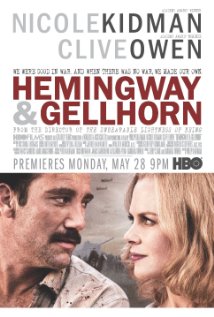
When I was a junior in high school, my English teacher gave our class a list of topics we could do our research papers on. We had never studied Saul Bellow before, but his name was on the list, and I chose to write about his absurd heroes. As Wikipedia states:
In philosophy, “the Absurd” refers to the conflict between the human tendency to seek inherent value and meaning in life and the human inability to find any.
When you’re an angsty teenager, life is Absurd. Writing out Spanish vocabulary words three times each in a row for homework was absurd. Learning square dancing in gym class while living in northern New Jersey was absurd. Having to do math long-hand when calculators existed was absurd. Parents were absurd. The routine of waking up, eating cold cuts for lunch, doing homework until bedtime was all absurd. Surely, there had to be more to life than this humdrum suburban life?
When I became an adult, working in a cubicle, my personal email address had the following quote from Saul Bellow’s The Dangling Man:
It may be that I am tired of having to identify a day as ‘the day I asked for a second cup of coffee,’ or ‘the day the waitress refused to take back the burned toast,’ and so want to blaze it more sharply, regardless of the consequences. Perhaps, eager for consequences.
It turned out, even when you’re an adult, life is Absurd. I was supposed to be over that the melodramatic apathy of a teenager, but I couldn’t shake that feeling that there had to be more to life. And I don’t think I was living a life more boring than most people. I was working in New York City. I had an enviable job. I had my own one-bedroom apartment. I had a boyfriend. I had a great group of friends. I was happy. But the routine of the day-in, day-out felt so mundane and ordinary … and meaningless. Being happy and successful wasn’t enough.
This is what Saul Bellow’s books capture so wonderfully. At the end of Henderson the Rain King–it came out in 1959; deal with the spoiler–the main character realizes that instead of searching to fulfill his own desires, he should have been helping others get what they want. It’s a long book, and it takes Henderson a long time to get there. Isn’t that just like life? He goes on a road trip of sorts to Africa. He sort of bumbles his way through adventures and has a lot of philosophical mad talk.
It’s because I first read and studied Saul Bellow that I was primed to understand Jack Kerouac. Even though I read it first, Henderson the Rain King actually came out two years after Kerouac’s On the Road, in which bumbling characters frenetically philosophized while road tripping across America. Both Bellow’s and Kerouac’s characters, sensing the alienation and Absurdism of life, have a longing that can best be described as spiritual. The dates of these books’ publications are important to note: Both Bellow and Kerouac had been in the merchant marine during World War II, and these are postwar novels dealing with the philosophical questions about the meaning and purpose of life.
Tonight, Joseph O’Niell is reading at the Saul Bellow Slam II at Housing Works. O’Niell is the author of Netherland. This beautiful novel isn’t written in the aftermath of World War II, like Bellow’s and Kerouac’s works, but of September 11. James Wood, however, wrote in the New Yorker, that it has been “consistently misread as a 9/11 novel, which stints what is most remarkable about it: that it is a postcolonial re-writing of The Great Gatsby.” Astute as that revelation is, F. Scott Fitzgerald’s The Great Gatsby is a post-World-War-I novel, whose narrator is war veteran swept up in Gatsby’s boozy parties that allow people to escape the mundaneness of their lives through social interaction. Netherlands, likewise, deals with the human need for connection.
We live in an Absurd world. We live in a sanitized, consumer, over-educated-and-underemployed culture. There are mass shootings and stabbings and an ongoing war. It is tempting to disengage, to “turn on, boot up, jack in,” as Timothy Leary said. Oftentimes, those who do choose to engage fashion themselves as critics and don a coat of irony. They comment on life from afar instead of risking to bumble through it.
I struggle with letting my walls down, with opening up. I don’t like the idea that people might think the most memorable thing about my day is that I had two cups of coffee or ate burnt toast. It’s hard to admit I long for something more, that I’m not satisfied. I keep turning to this literature, though, and I sense that this dissatisfaction or angst is a good thing. This world will never satisfy, and if I am too comfortable or too fulfilled or too put-together then I am probably deluding myself.
Tags: absurd hero, angst, Dangling Man, Henderson the Rain King, Jack Kerouac, Joseph O'Niell, longing, Netherland, On the Road, satisfaction, Saul Bellow, teenager, war, World War I, World War II
 Ernest Hemingway on safari, Kenya, 1954, via the JFK Library
Ernest Hemingway on safari, Kenya, 1954, via the JFK Library


